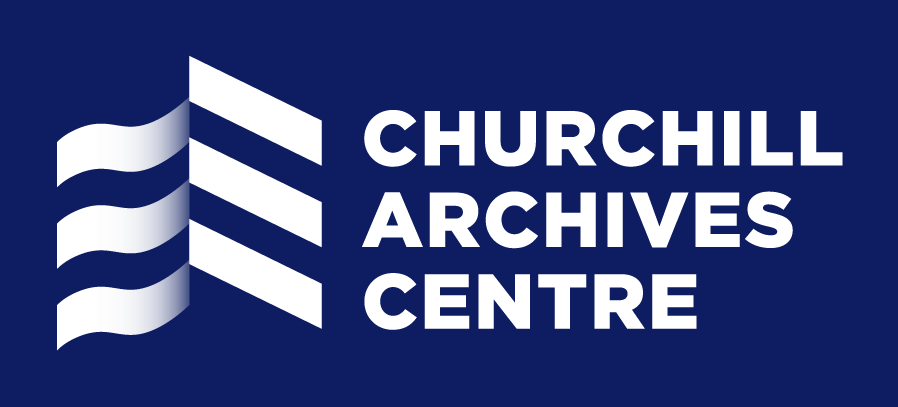Policy on access, freedom of information and data protection
1. Introduction
Churchill Archives Centre is keen to promote and facilitate access to information and welcomes enquiries from anyone interested in the Centre and its collections. Please refer to our Access Policy & Service Delivery Charter for further information.
Churchill College, including the Archives Centre, is covered by the Freedom of Information (FOI) Act which came into force in January 2005.
Churchill Archives Centre preserves its collections in perpetuity for long term public benefit. Under the 2018 Data Protection Act, the Centre is permitted to process personal data (including sensitive personal data) without consent, where necessary for “archiving purposes in the public interest”. For further information, please refer to the information available from the National Archives.
The websites of the Information Commissioner’s Office and the National Archives include further information about FOI and data protection. You can find Churchill College’s publication scheme and Data Protection policy on the College website.
This policy statement relates specifically to the Churchill Archives Centre and is not a guide to FOI or data protection.
2. Asking for information and making an FOI request
We welcome enquiries about our collections and the Centre itself. Under the terms of the FOI Act, you can make an FOI request for information by putting your enquiry in writing to the Centre (by e-mail or letter), giving details of your name, postal or email address and describing the information you are seeking. You are also able to specify the format in which you would prefer the information to be supplied. We have 20 working days to respond to your request (although we aim to do so as quickly as possible). There may be charges associated with answering your request (for example in providing copies) and we will advise you of these. Please note that there are no charges for visiting the Archives Centre.
Section 5.6 of this policy covers making requests to access closed information, including FOI requests and requests for personal information (data subject access requests).
3. Our contact details
Churchill Archives Centre
Churchill College
Cambridge
CB3 0DS
Telephone: (01223) 336087
E-mail: [email protected]
Website: www.archives.chu.cam.ac.uk
4. Finding aids
Catalogued or box-listed archives are considered to be ‘published’ under the FOI Act and are mostly available to researchers. The majority of our catalogues and finding aids are available online free of charge, see our collections pages for further details. Our website also has information about arranging to visit us.
5. Closures within collections
We are keen that material in our care is open and accessible as far as possible. However, within some of our collections, some files or documents are closed and are not available for consultation. The reasons for these closures generally fall into the following categories:
5.1. Closed on instructions from or in consultation with the Cabinet Office
Churchill Archives Centre holds many papers of individuals who played significant roles in public affairs and represented the government at high levels. The information contained in our collections overlaps with the information contained in the government’s own records held at the National Archives. The Cabinet Office, and occasionally other external organisations, reviews our collections to ensure that information that is available at the National Archives is available here and that information that is not available at the National Archives is not available here either. The reasons for this type of closure are reflected in the exemptions to the Freedom of Information Act and may include: national security matters, defence and international relations, internal relations, formulation of government policy and the conduct of public affairs, honours and contact with the Royal Family.
5.2. Closed on data protection grounds due to the presence of personal data and sensitive/ special category data about named individuals who are (or may be) still alive
Personal data (or personal information) is defined as:
data or other information about a living person who may be identified from it or combined with other data or information held.
Some special category data are defined as:
information regarding an individual’s racial or ethnic origin; political opinion; religious or other beliefs; trade union membership; physical or mental health or condition; sexual life; or criminal proceedings or convictions, as well as their genetic or biometric information.
It is possible that sensitive personal information about potentially living individuals is not always closed in our collections. Readers are reminded that the registration form for a reader’s ticket includes the following undertaking:
“I undertake to indemnify Churchill College against all claims and actions on the part of other persons arising out of the disclosure or publication by me in any other way of any matter taken from any archive in the Archives Centre which may be held to constitute a libel upon any person, or be an infringement of copyright or data protection legislation, or be a breach of confidence.”
5.3. Closed according to donor’s wishes
Churchill Archives Centre exists to preserve and make available the raw material of our recent past. We are actively collecting and seeking to collect new material in line with our collecting policy. We are always keen to try and persuade donors to agree that collections should be open and accessible. However, owners sometimes feel that material in their collections has ongoing sensitivity and that they cannot agree to public access. Churchill Archives Centre also has a responsibility to posterity and, in order to secure the preservation of a collection which falls within its collecting policy, will agree to reasonable conditions that the donor feels are necessary. Information that remains closed on donor’s wishes has been supplied to the Archives Centre in confidence and is therefore exempt from the provisions of the FOI Act. Information in collections which are not owned by Churchill College (i.e. collections deposited on loan) may not be covered by FOI.
5.4. Uncatalogued material
Churchill Archives Centre is not able to provide access to entirely uncatalogued or unlisted collections. The main reasons for this are to ensure the security of the material; to package or repair material to make it physically safe to handle; and to preserve the original order of material. The Centre currently has an active cataloguing programme which enables us to tackle our cataloguing backlog.
5.5 Material which is ‘unfit for production’
Some material in our collections is too fragile to be safely handled without risking significant damage or further damage to the original materials. Please see our Collections Care and Conservation for further details.
5.6. Asking about closures in our collections
We are keen to respond as positively as possible to all enquiries (including data subject access requests and FOI requests) and would encourage you to seek further details about information which is closed for the reasons outlined above. Let us know what you need and we will try to help. We may be able to do the following:
5.6.1.
Refer material that has been closed on instructions of the Cabinet Office (or in consultation with the Cabinet Office) to the Cabinet Office or other agencies to check that it should still remain closed. In such cases we would reply to you within 20 days although we may have to wait longer for a response from external agencies including the Cabinet Office.
5.6.2.
Review material closed on data protection grounds and, under certain circumstances, we may be able to allow access. People have a right to see information about themselves: if you think that we may have information about you (for example in staff, student or Fellows’ files held in the College archive or in our deposited collections) please get in touch so that we can check this for you.
5.6.3.
Double-check the donor’s wishes — this may give us a valuable opportunity to revisit the terms under which a collection was given to the Centre and check that sensitivities identified at the time of deposit are still an ongoing concern.
5.6.4.
Give you information about our cataloguing programme so that you know which collections we are currently cataloguing and those we hope to catalogue in the medium term. Our cataloguing programme is flexible and we would hope to prioritise the cataloguing of collections for which there is demand, as far as our resources allow. Please note that we may prioritise work on these collections which we own (ie collections which are not on loan to the Archives Centre).
5.6.5
Under certain circumstances Archives Centre staff may be able to check records on behalf of researchers, including boxes in closed and uncatalogued collections, and documents where their inherent fragility prohibits access on conservation grounds, and to provide a summary of the information contained in the records. The Archives Centre may have to make a charge to cover the cost of such research, and would always advise the researcher of such charges before they were incurred.
6. Appeals and complaints
The Information Commissioner’s website contains details of how you can appeal against a refusal to provide information. Before you appeal to the Information Commissioner, please use our internal complaints procedure by contacting the:
Data Protection Lead
Churchill College
Storey’s Way
Cambridge
CB3 0DS
Telephone: +44 (0) 1223 336000
Email: [email protected]
Reviewed by: Hannah James
Date: September 2023
Date of next review: October 2024tober 2024 Hannah James, October 2021

